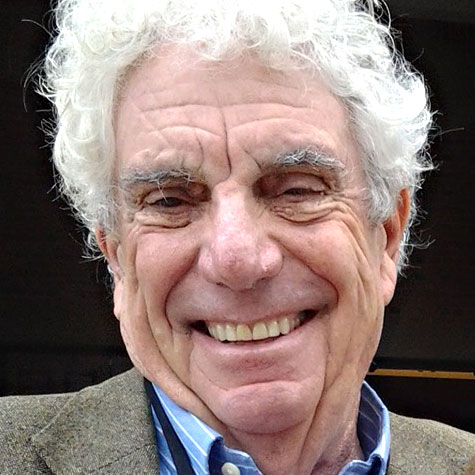Last week, I pulled out a big, unsorted folder from my desk filled with material I had used for my Jewish Journal columns. Early in my
career, I was taught to take notes on folded sheets of paper, my employer being too cheap to buy notebooks. After finishing the story, we reporters usually threw away the notes, believing that nothing we wrote was of lasting value.
When I started writing books, I realized the value of saving things — but not in an organized way. Still, I had the material for my columns, and I thought that wading through it would be a good way to review the year — and it was.
I spent much of my time in 2004 on the Jewish vote in the presidential election. I interviewed party activists and ordinary voters, many of them in the San Fernando Valley. Because of its middle-class demographics, the Valley is an excellent laboratory for politics of all kinds.
I looked at the election through the prism of Israel, speculating on whether President Bush would improve his standing in the Jewish community because of his ironclad support of Prime Minister Ariel Sharon.
In the end, the president got 24 percent of the Jewish vote, according to an analysis of exit polls. This was 5 percent more than he received in 2000, a fact hailed by Jewish Republicans as a victory and by Jewish Democrats as a repudiation.
Actually, according to the Jewish Virtual Library, his total was far below his father’s 35 percent in 1988, Ronald Reagan’s 39 percent in 1980, Richard M. Nixon’s 35 percent in 1972 and Dwight Eisenhower’s 40 percent in 1956.
Looking back on the election, it’s clear there was more to the Jewish vote than Israel. The 76 percent Kerry vote included huge numbers of people who are intensely fervent in their support for Israel. The 24 percent who voted for Bush don’t have a monopoly on the issue.
There were many other factors driving the Kerry vote. His voters didn’t like Bush, disapproved of his war policy and felt he was taking the country down the wrong road domestically with proposals such as privatizing Social Security.
Other factors were also important. Although I didn’t explore it much, I’ll bet the religious and cultural divide in the Jewish community was as important in shaping the Jewish vote as was Israel.
As the Israel Insider noted in its post-election analysis, a higher proportion of Orthodox Jews were Republican than less-observant or secular Jews.
How did religion and culture play into this? Are Orthodox Jews like fundamentalist Christians, bringing to the political process a whole basket of convictions that ran counter to what was proposed by the Democratic candidate and the party platform?
Did the Orthodox resent the way liberal Hollywood campaigned for Kerry? How did they react to newly wed same- sex couples hugging after marriage ceremonies in the San Francisco City Hall presided over by Democratic Mayor Gavin Newsom?
And what about abortion? Feelings on this subject will come out in the debate over new Supreme Court justices, which basically will revolve around how the nominees feel about choice. Without getting into a discussion about the range of rabbinical thought on abortion, it’s safe to say many Orthodox thinkers take a position that choice advocates would say is distinctly anti-choice.
In the last presidential election, the Republicans demonstrated a great ability to pick out ideological sympathizers from masses of voters. Undoubtedly, they will do this with Orthodox Jews as they seek support for a Bush Supreme Court nominee.
They know there’s a culture war in the Jewish community, as there is elsewhere in America. Tracking it will be a challenging job in the months ahead.
In my brief expeditions to college campuses during the past year, I saw a wide variety of thought and activism that was reflective of the community as a whole. I’ve made a resolution to explore them more.
Looking through my folder, I found other ideas to be checked out. One is Jewish life in the far suburbs that stretch beyond the West Valley into Ventura County. What are the ties that bind this community?
Another subject is the Jewish poor, particularly the elderly. I dipped into this early in my Jewish Journal writing career but never followed up. How will this impact the Social Security debate? What will be the attitude in the Jewish community to the medical and social service cuts being considered in Sacramento and Washington?
Any other ideas will be appreciated. When I started this column, I thought of it as my personal voyage of discovery through the Jewish community, in all its richness and diversity. I still have a lot of territory to cover.
Bill Boyarsky’s column on Jews and civic life appears on the first Friday of each month. Until leaving the Los Angeles Times in 2001, Boyarsky worked as a political correspondent, a Metro columnist for nine years and as city editor for three years. You can reach him at
Did you enjoy this article?
You'll love our roundtable.
Editor's Picks



What Ever Happened to the LA Times?

Who Are the Jews On Joe Biden’s Cabinet?


No Labels: The Group Fighting for the Political Center
Latest Articles

NSFW – A Poem for Parsha Metzora

Israel War Room Launches in Spanish

Modern Book Bans Echo Past Atrocities and Further Silence Marginalized Voices

The Power of the Passover Seder to Unite Jews

Dr. Nicole Saphier Reflects on Motherhood and Jewish Advocacy












 More news and opinions than at a Shabbat dinner, right in your inbox.
More news and opinions than at a Shabbat dinner, right in your inbox.